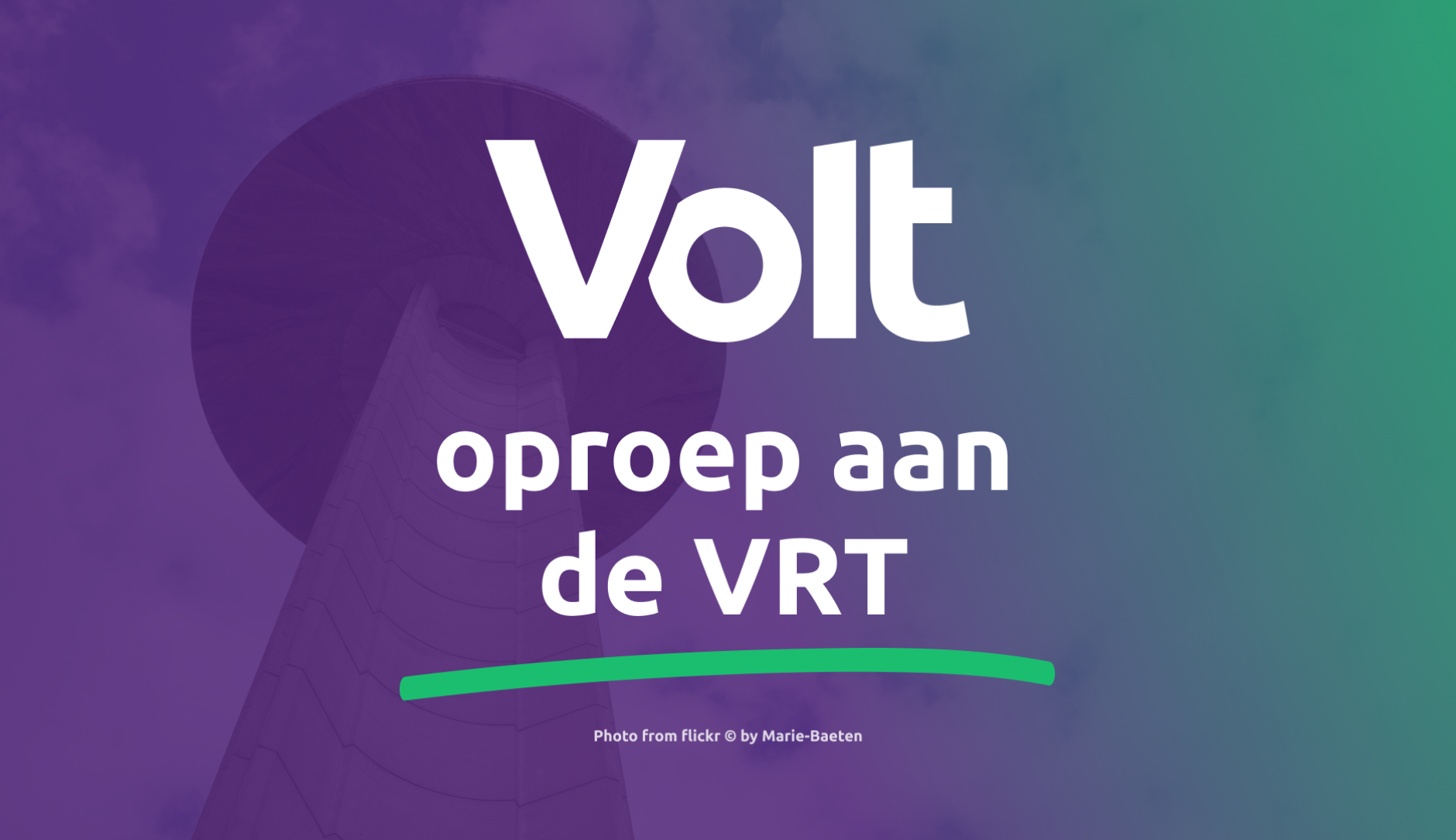Appeal to VRT
Read below Volt's appeal to VRT in an open letter.

[Header of the letter omitted]
On June 9, we will go to the polls for the regional, federal, and European elections. The VRT has received ample additional resources from the Flemish government for this major election year. With the title Kies24, the VRT, as a public broadcaster, aims to “inform and guide all Flemish and Brussels residents well and clearly.”
The information provided to voters includes the Voting Test and the Voting Test for first-time voters, the “First Choice” program, information via nws.nws.nws and MNM, special attention to the elections from the regional editors, and existing programs such as Terzake and The Agreement, as well as the “Great Debate” between the party leaders. There are also numerous items on the website, such as 84 party leaders from seven parties who answer questions in short videos. All in all, it is a comprehensive package.
“In the weeks before the elections, VRT is providing information that every voter needs to know before he or she goes to the polls,” notes the VRT website. It seems logical that this vital information concerns all parties that the voter will find on the ballot paper, large and small, established and new. Despite their differences, these parties share one thing in common: they are all on the ballot paper, without any distinction.
On June 9, voters will be able to cast their vote for Volt in seven electoral districts in the regional, federal, and European elections. However, Volt is excluded from the television debates. That is why Volt filed summary proceedings, specifically concerning exclusion from the VRT debate of the European party leaders on 31 May.
The judge gave his ruling on 29 May. Although the judge has made clear statements about the VRT's obligation to provide information regarding elections, it nevertheless decided not to intervene preventively. Volt therefore unfortunately remains excluded from the debate.
Volt is also not included in the Voting Test, the Voting Test for first-time voters, the question & answer videos with 84 party leaders on the VRT site, nor the polls co-commissioned by the VRT. The exclusion of new parties is not a new problem. It is also evident from the evaluation of the election coverage by VRT NWS in 2019 by then VRT News Ombudsman Tim Pauwels: “… the editors could have better planned the attention for the small parties in advance. It is absolutely defensible that not all parties are treated the same, but small parties also add freshness and color to the process. Attention should certainly also be paid to this.”
However, little seems to have changed, as in 2024 the electoral coverage is still almost exclusively dedicated to established parties, and the planning and criteria for including new parties in Kies24 seem rather arbitrary and not predefined. New parties remain virtually invisible in Kies24. While it is common to distinguish between established and new parties, large and small parties, the difference is disproportionate and gives the impression that there are different categories of parties, categories that do not exist on the ballot paper. The voter is only informed about some of the parties he finds on his or her ballot paper.
Volt is obviously disappointed with the judge's ruling. However, the exclusion of new parties is not only problematic for the parties concerned but also an obstacle to much-needed political innovation and therefore to democracy. There are more than enough examples in other countries that things can be done differently and better. The growing frustration of many citizens with “politics” also makes it clear that a new approach is desperately needed.
It appears that the VRT News Ombudsman will have to write the same evaluation report in 2024 as five years earlier. And there will be conflict, lawsuits, and frustration again in the next round of elections. Volt prefers to find solutions in a constructive manner and in good cooperation and therefore proposes to start an open dialogue with the VRT, the VRT News Ombudsman, political parties, relevant civil society organizations, and experts in the field of democratization to innovate the political coverage of elections, which may possibly result in a social discussion and concrete steps. We propose to start this dialogue as soon as possible.
Awaiting your prompt reply.
Yours sincerely,
Carlo Giudice, Co-President of Volt Belgium
Sophie in 't Veld, European Lead Candidate Volt Belgium